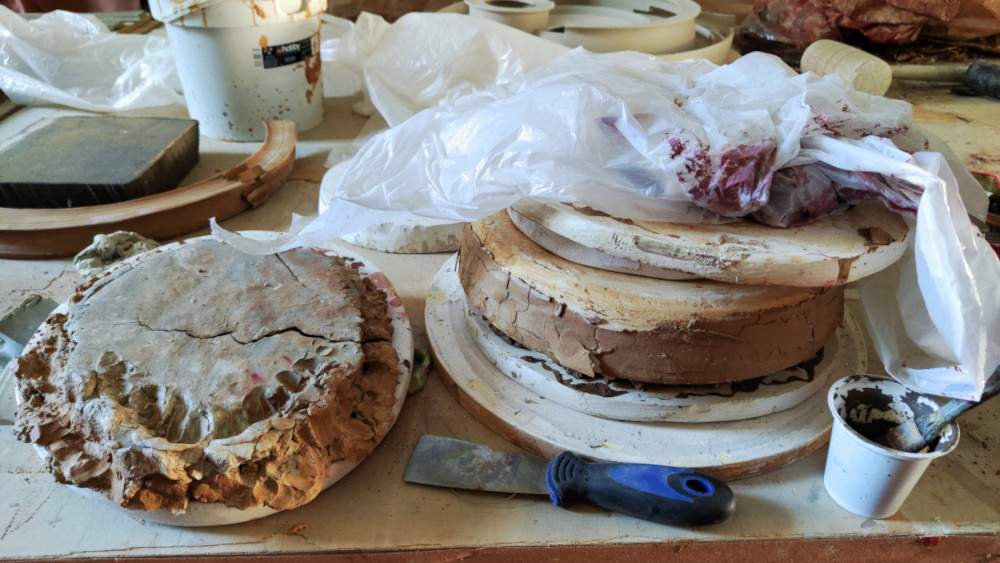MIC Faenza, flood clays and mud bring new works to life
From Sept. 23 to Oct. 29, 2023, the project room at the MIC in Faenza will exhibit new works by Chinese artist Wei Bao, the under-35 winner of the 62nd edition of the Faenza Prize 2023 with the work Courtyard Twilight Series IV. For the first time in the history of the Faenza Prize, the artist was given the opportunity to do a residency at the Faenza museum to produce new pieces in dialogue with the museum collections. Those on display in the exhibition Turbinii e sentieri will therefore be the works created during the two months spent in the ceramic workshop at MIC Faenza.
In these, Wei Bao draws attention to the relationship between man and nature starting with a study of ancient civilizations and their living cores. After a cue and reflection proposed by MIC Faenza director Claudia Casali, the artist wanted to narrate the difficult historical moment of the post-flood territory by initiating a special dialogue with the Zauli Museum, recovering clays and materials from the basement that suffered extensive flood damage.
“In residence for two months in Faenza, Wei Bao, a young talent active in Jingdezhen,” says Matteo Zauli, director of the Carlo Zauli Museum, “declined the identity of his artistic research to the Faenza of today and the places he visited, creating an engaging installation that interweaves his own culture of origin and the city in which he habitually works, the ancient origin of relations between Italy and China, through the Silk Road, the materials of our city and the workshop that hosts it, the clay gullies from which Faenza ceramics draw life, and the alluvial mixtures created in the cellars of the Carlo Zauli Museum.”
“My project starts from a reflection on water,” commented Wei Bao, “and in particular from a teaching by Xuncius, a Chinese Confucian philosopher from the third century B.C., which reads ’Water can carry a boat, but it can also sweep it away.’ This saying was originally used as a metaphor for the relationship between the people and the emperor and has now been extended to various aspects. Water created human civilization, and water can destroy everything that humans have created. Human beings are therefore forced to respect the power of nature. Thus one part of my project is inspired by the first part of the saying and the other by the second part. In the works concerning the second part, I have minimized my intervention by accepting the natural process of deforming and breaking the works.”
A catalog will be published that includes an interview conducted by curator Matteo Zauli with artist Wei Bao.
Pictured are clays mixed with mud collected in Faenza.
 |
| MIC Faenza, flood clays and mud bring new works to life |
Warning: the translation into English of the original Italian article was created using automatic tools. We undertake to review all articles, but we do not guarantee the total absence of inaccuracies in the translation due to the program. You can find the original by clicking on the ITA button. If you find any mistake,please contact us.



























